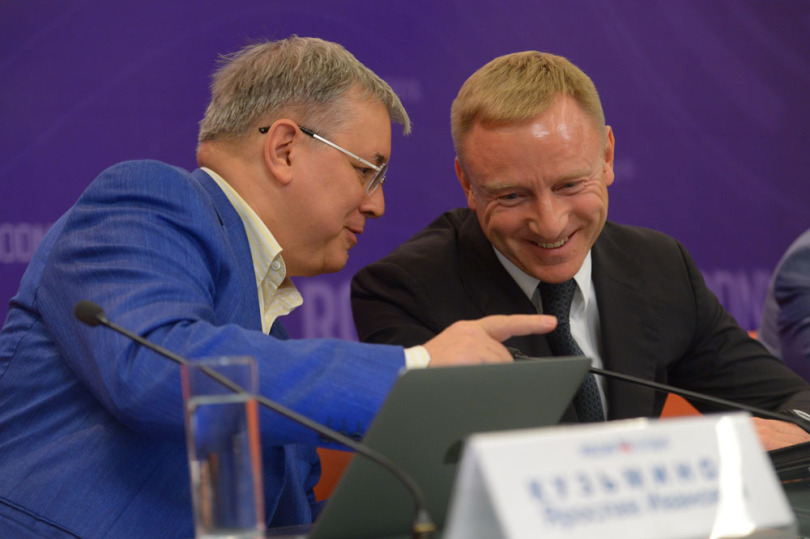53%
of full-time university teachers have several jobs.
1.5
is the minimum number of times by which Russia’s housing market will decline in value terms in 2015.
81%
of teachers at Russian universities last year produced at least one publication and presented at least once at a conference.
1.5
is the number of times by which the salary of teachers in Moscow professional and technical schools must be raised to recruit the ‘ideal teacher’ according to the heads of these institutions.
65%
of full-time students at Russian universities studied free of charge in 2014.
Russians’ Scientific Literacy on the Rise, but only a Third Know Plants Have Genes
Educational media is expanding rapidly in Russia, while scientists are giving more lectures on popular science to packed auditoriums and more scientific festivals are taking place than ever before. But do these efforts actually pay off? As part of a monitoring survey on innovative behaviour in Russia, experts from the HSE Institute for Statistical Studies and Economics of Knowledge (ISSEK) have found that over a five-year period spent measuring the scientific literacy of the Russian public, the percentage of people who find it difficult to answer ‘elementary school’ questions – for example, questions about the Earth’s core or continental drift – is steadily declining. But questions any more specific than that continue to leave people scratching their heads.

Quality of Enrolment in Technical Universities has Grown Considerably
On September 3, 2015, Dmitry Livanov, Minister of Education and Science of the Russian Federation, HSE Rector Yaroslav Kuzminov, and Alexander Biserov, Deputy Head of Rosobrnadzor (Federal Service for Supervision in the Sphere of Science and Education) presented the annual monitoring of the quality of enrolment in the state-funded places of Russian universities in 2015 at Rossiya Segodnya IIA (International Information Agency). Among the top ten universities in terms of enrolment quality, HSE took third place and HSE campus in St. Petersburg took eighth.
4.5%
could be the percentage by which GDP falls for the year. By way of comparison, in 1998, the decline in GDP was 5.3%
13%
of full-time students at Russian universities in 2014 had intentions of studying abroad. A year earlier, the figure was 20%.
31%
of professional and vocational schools in Russia are currently not enrolling students for professional education programmes due to a lack of demand.


Submission Deadline: December 20, 2025